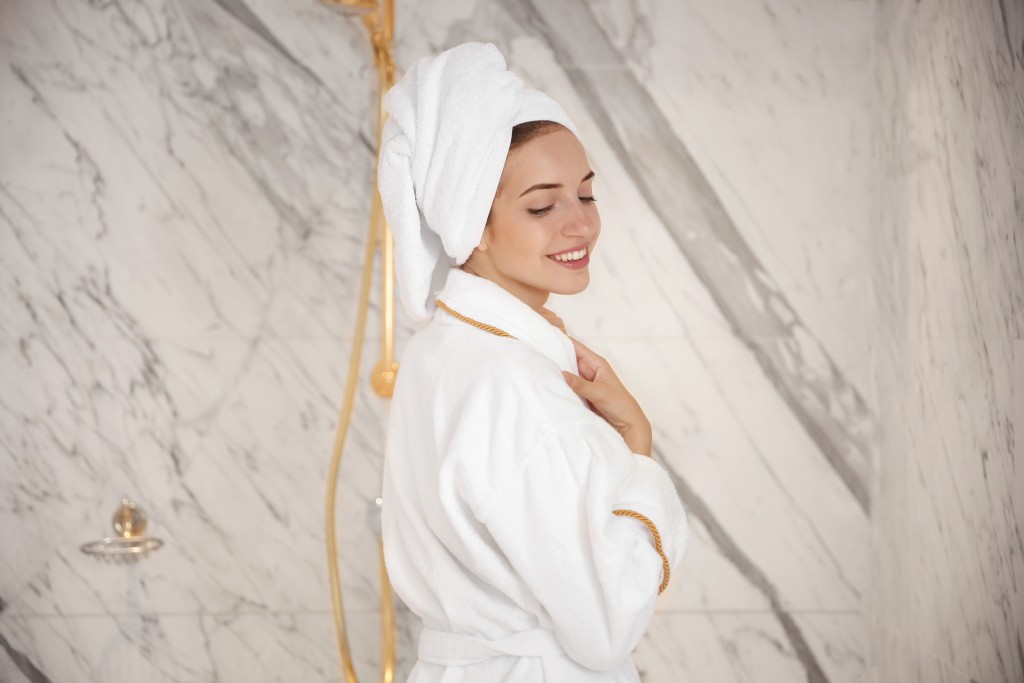In tropical countries like Indonesia and the Philippines, people are so used to showering at least two times a day. From a young age, they’ve been constantly reminded by their elders never to let a day pass without taking a shower, especially in the dry season. But they were also warned not to shower at night.
The reasons mostly have to do with superstitions and religious beliefs. In the Philippines, elders forbid taking a bath or shower after 3 PM, particularly during Holy Week, as they believe it attracts bad luck. Young people don’t give this much regard, though, but chances are their parents are still practicing it.
But what does science say about taking a shower at night? If concerns about your health are stopping you from stepping into the shower room before bed, then it’s best to listen to experts who have studied the effects of taking a hot vs. cold shower at night.
Body Temperature Changes Throughout the Day
If you take a cold shower every night, you need to be more careful from now on, because it turns out that it can be bad for your health. But it has more to with your metabolism than when you take a shower. That’s because the state of our metabolism is categorized into two: before we sleep and after we sleep, according to Mahesa Paranadipa of the Indonesian Doctors Association.
Your body temperature changes as the day progresses. Around bedtime, you’ll usually experience a 0.5 to 1 °F (about 0.3 to 0.6 °C) drop in body temperature. It drops even further while you sleep, reaching its lowest between the middle and later span of your nighttime slumber.
For that reason, taking a cold shower at night can “shock” you. Mahesa compares it to dousing cold water into hot glass. At the same time, Dr. Michael Breus of the American Sleep Board Medicine notes that it can cause the body temperature to plunge even lower, leading to increased alertness instead of relaxation.
As such, a cold shower can weaken your immune system. But there’s a way to prevent this from happening. That is to get some sleep first so that your body temperature can adjust before cold water hits it. That way, your metabolism also recovers and becomes well-suited for a cold shower.
Hot Baths Are Recommended
There’s good news for devoted evening hot bath fans. According to research, having a hot bath at night can help in alleviating sleep issues. But note that baths have a different effect than showers.
In a bath, your body is soaked in a tub, changing your body temperature faster. If you take a bubble bath, a layer of insulation will form around your body, keeping it warmer longer. And since you’re lying down, you’ll be able to relax better and feel more nestled.
What’s more, Dr. John Harcup, chairman of the Medical Advisory Committee for the British Spa Foundation, says that the feeling of closeness we receive from a hot bath gives us a sensation of being in the womb — highly comforting and secure.

So if you haven’t gotten a water heater yet, find your area’s best water heater installation service now. Once the device is ready for use, set the water temperature to 104 to 109 °F (40 to 43 °C) for the best results. Research has revealed that such heat levels give the best sleep quality. Bathe one to two hours before bed, and you might find yourself falling asleep 10 minutes faster than usual.
Avoid bathing too close to bedtime, because it won’t give your body enough time to cool down. As a result, the effects may be reversed, disrupting your sleep instead of improving it.
Other Hot Bath Benefits
Hot baths also soothe tired and painful muscles. It aids in better blood circulation as well. If you add epsom salt to the water, its anti-inflammatory properties will reduce the inflammation in the different parts of your body, benefiting sufferers of metabolic diseases and Type 2 diabetes the most.
And since warm water aids in healthy blood circulation, your heart health will get a boost in turn. It may reduce high blood pressure, prevent serious health diseases, and give your body a mini work-out. Speaking of which, you’ll burn calories in a hot bath, too, as if you’ve taken a walk.
But more importantly — especially these days — a hot bath can relieve cold and flu symptoms. Of course, it’s still best to visit the doctor when you’re having flu-like symptoms, but in the meantime, you can soak in a hot bath to feel better. The water’s heat will open up your nasal passages and boost your immune system, helping it fight off viruses stronger.
So now we got our answer: An evening shower isn’t bad, but a bath may have stronger effects. But as long we set the temperature to healthy levels, either shower or bath will benefit us, and that if we do it one to two hours before sleeping.



















